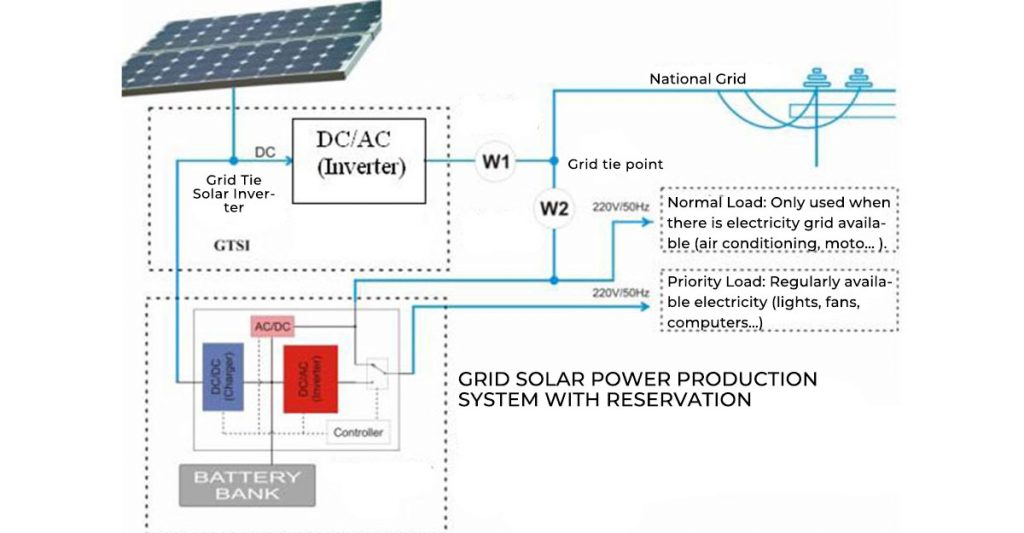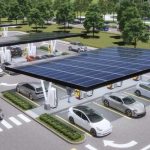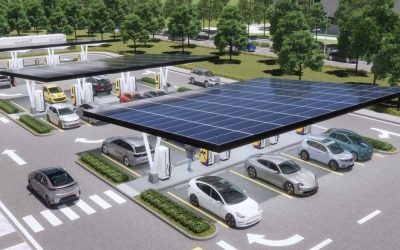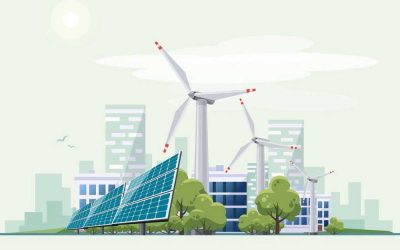
People are increasingly choosing off-grid solar power systems over conventional on-grid electricity as a substitute. These self-sustaining systems are capable of supplying homes, companies, and other uses with electricity. Many people are keen to learn more about them because of their various advantages, which range from financial savings to environmental friendliness. The advantages and disadvantages of off-grid solar power systems will be thoroughly discussed in this article, along with what to anticipate when making the move.
- Install Solar Panels for Self-Sufficient Electricity
- What are the advantages of businesses pursuing sustainable development?
- Home solar system: Renewable energy solutions for residential users
Off-grid solar power is a growingly well-liked substitute.
An increasingly common substitute for conventional on-grid electricity is off-grid solar power. For many, it offers both the opportunity to participate in a greater environmental movement and the financial freedom they want. The advantages, difficulties, and unexpected outcomes of using solar power to go off the grid will all be covered in this article.
Advantages of Using Solar Power Off-Grid
The huge decrease in electricity expenses is the main advantage of moving off-grid with solar power. Homeowners that install a solar system might anticipate annual savings of hundreds (or even thousands) of dollars after making the initial expenditure. Reduced carbon emissions and fossil fuel consumption have a positive effect on the environment, which is another advantage. A further benefit of switching to off-grid solar power is the flexibility it provides to produce your own electricity independent of the power grid.
The Operation of Off-Grid Solar Power
There are various essential parts that make up a solar power system. Sunlight is converted into power by solar panels. Batteries are used to store this electricity for later use. The direct current (DC) supplied by the solar panels is converted into alternating current (AC), which is suitable with home electronics and appliances.
You must determine your energy requirements in order to guarantee that the size of your off-grid solar system is appropriate. This necessitates assessing typical energy use and estimating the amount of energy you will need to produce. To achieve this, you’ll need to examine your energy bills, compute the overall amount of energy consumed, and take future energy requirements into account.
Steps for Using Solar Power to Get Off-Grid
There are a number of measures to follow when using solar electricity to get off the grid. The first step is to evaluate your energy requirements and estimate how much electricity you will need to produce. After doing this, you may start choosing and buying the required equipment. This consists of several parts including batteries, inverters, and solar panels. The system should be installed and maintained on an ongoing basis by a professional.
Preservation and upkeep
Every off-grid solar system needs to be properly maintained and cared for. This include maintaining the batteries, regularly cleaning the solar panels, and resolving any potential problems. In order to make sure that your system is operating effectively and securely, it’s crucial to have a maintenance plan in place.
Finances Available
Off-grid solar power systems may be financed in a number of ways. Homeowners can benefit from government incentives and rebates as well as financing choices and loans provided by banks and energy providers. Budget for your system and comprehend any associated expenses before pursuing any financing options.
Limits and Obstacles
With any off-grid system, there are various difficulties and restrictions to take into account. The effectiveness of the system may be impacted by weather and seasonal fluctuations, and it is important to consider the constraints of the energy storage. In addition, the price of maintenance and repairs may rise with time.
Examples of Off-Grid Solar in the Real World
There are innumerable success stories of people using solar energy to get off the grid. These case studies highlight the benefits and possibilities of off-grid solar. But it’s also critical to be aware of potential difficulties. You can be more ready for any shocks or unforeseen challenges by studying other people’s experiences.
Unexpected Advantages and Surprises
Increased knowledge of energy saving is one of the unexpected advantages of switching to off-grid solar electricity. When they are producing their own electricity, people frequently become more aware of their energy consumption. Also, those who utilize off-grid solar frequently create new connections and communities with their nearby neighbors. A better sense of community and connection may result from this. Furthermore, there can be unanticipated financial advantages, such the opportunity to sell extra energy back to the grid.
Solar power off-grid living has several advantages, including cost savings and independence from the grid. While there are certain difficulties to take into account, such as weather conditions and storage restrictions, there may also be unanticipated advantages, such as greater comradery, raised knowledge of energy saving, and even financial gain. The advantages and disadvantages of off-grid solar power systems have been discussed in general in this article, along with some advice for switching.









